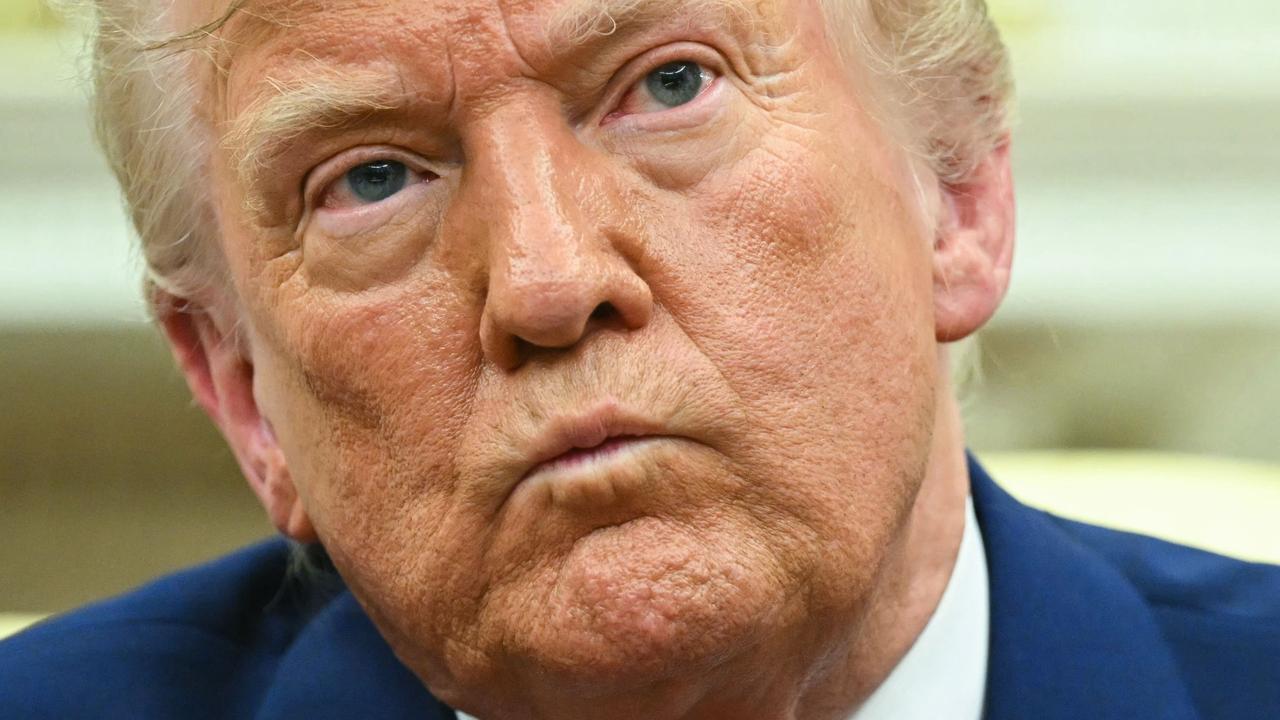Fake students complain to Indian newspaper after Australian ‘ghost college’ crackdown
Indian students have brazenly admitted rorting Australia’s visa system through dodgy “ghost colleges” that leave them “free to work until they get residency”.
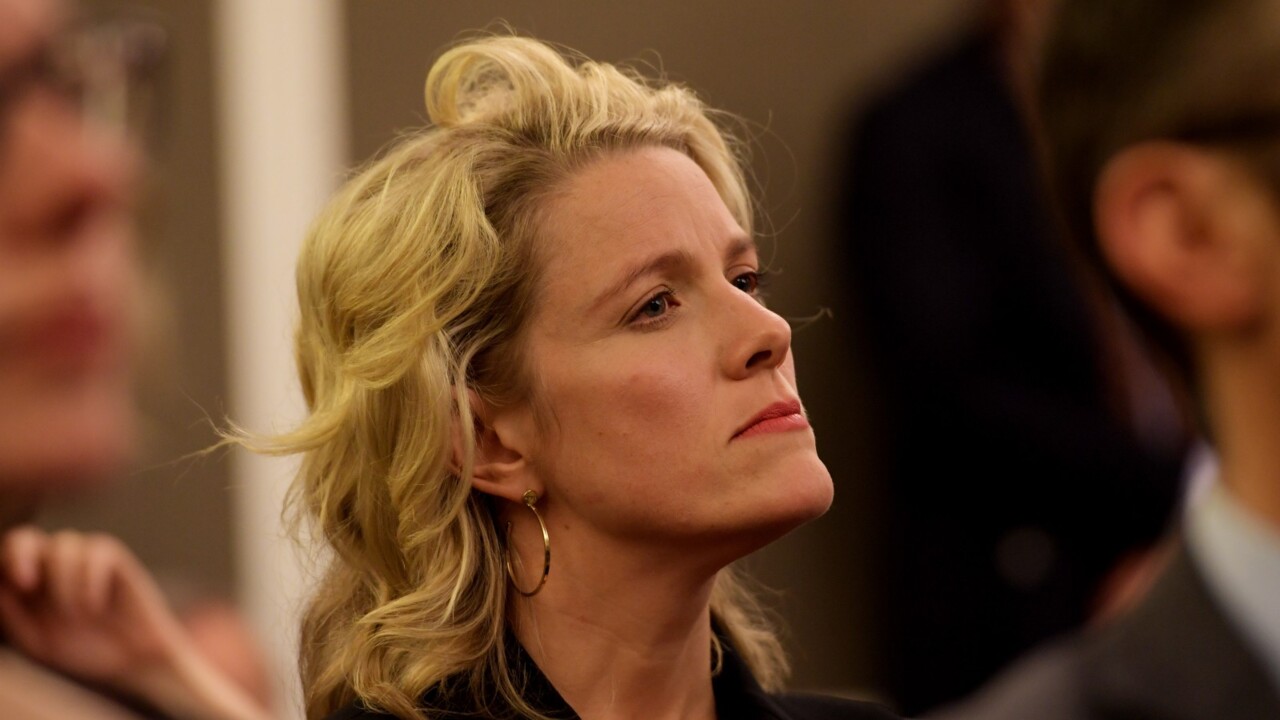
Economy
Don't miss out on the headlines from Economy. Followed categories will be added to My News.
Indian students and migration agents have brazenly admitted to rorting Australia’s visa system through dodgy colleges that leave them “free to work until they get residency”.
The Albanese government announced in August that around 150 so-called “ghost colleges” had been shut down and another 140 issued warning notices by the regulator.
Ghost colleges or “visa factories”, which offer no real courses but enable fake international students to come to Australia for work, have long plagued the troubled vocational education sector. Labor earlier this year announced a renewed crackdown, promising “shonks and dodgy operators” would be weeded out.
Following the August announcement, Punjab-based newspaper The Tribune published a sympathetic article about the “bleak future” faced by affected students after paying thousands of dollars in fees.
The article reported that some of the 150 colleges shut down for failing to show proof they were offering “any regular training or studies to the students” either worked with or were co-owned by “unscrupulous agents and study visa advisers from Punjab”.
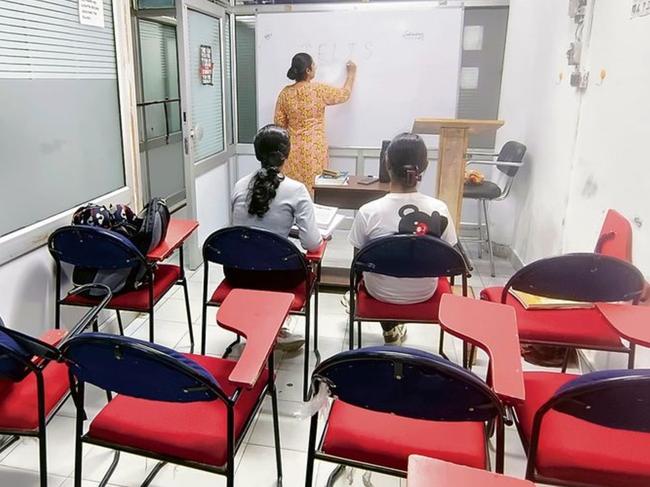
“For decades, illegal private colleges had been providing backdoor immigration and work rights to internationals students,” the article read.
“Hundreds of students from North India rush to these colleges every year ‘to take dummy admissions and instead work’, while their attendance and course certificates are taken care of.”
One such student told The Tribune he “came to Australia two years ago as a student after being assured that I can work five days a week, while my attendance and course would be taken care of”.
“Now, I have been told by my Punjab-based agent that the government has sealed the college,” he said. “The agent who sent us here has already shut operations in March after being booked in a visa cheating case.”
Another student said she and her brother were working at a cafe in Adelaide but in August they had been asked to report back to the college.
“The authorities later shut the college,” she said. “Till now, we have no idea how to handle the situation. We have already paid the entire course fee.”
One migration agent who had sent more than 250 students to Australia over the past four years said he had already shut his operations in Punjab “after Canada and Australia tightened the noose around study visas”.
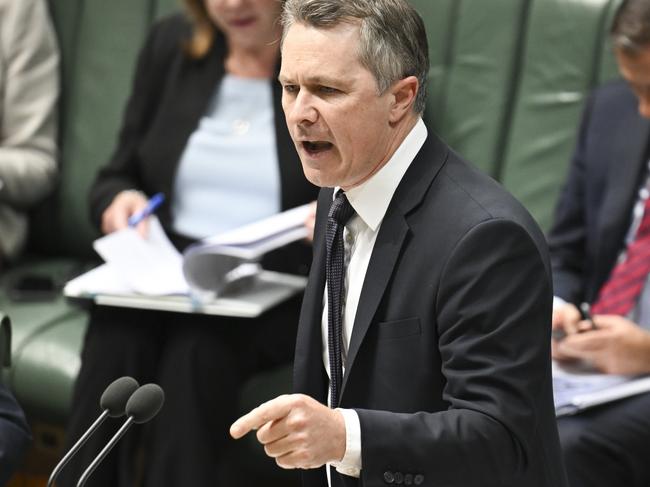
“Many private colleges in Canada and Australia have funding from agents like us,” he said. “We have told the students not to panic and there will be a way out soon.”
Another agent said, “The students know that the college admission is a mere formality and that they are free to work there till they get residency.”
The Tribune’s article, which was published in September, went viral after being shared on Reddit this week.
“I don’t think anyone would object to international student levels if the industry was primarily about education, and not considered as a pathway to migration with all the unscrupulous actors that then creates,” one person commented.
Another shared that they had worked at a ghost college.
“There were over 600 students on the books, but we’d be lucky to get even one of them showing up,” they wrote.
“This was for an English pathway to VET program. For those who don’t know, there’s a piece of legislation that says students in ELICOS (English) programs must attend at least 80 per cent of their classes or risk having their visa cancelled. I was the director of studies at the time and I was kept in the dark about how this was a ghost college. I kept getting frustrated that I couldn’t hire more teachers (legislation requires 1:18 ratio of teachers to students) and that I would have to report students en masse for non-attendance. I basically got told to shut up.”
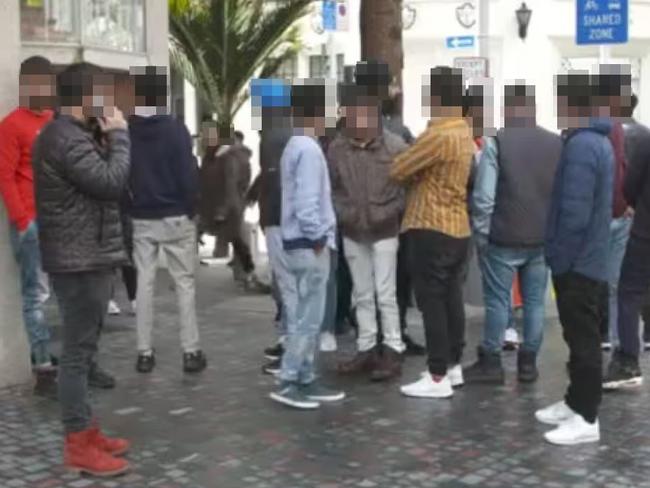
The commenter said they “soon found out these students had been brought over on student visas in a deal with a construction company — the students would work in construction all day instead of coming to class”. “They were tricked, as far as I know, and brought over from some poor areas of China,” they said. “I quickly resigned from that role and reported them to I quickly resigned from that role and reported them to [the Australian Skills Quality Authority].”
Many took issue with characterising the students as the victims.
“They’re not exploiting vulnerable students,” one said. “They’re co-conspirators in a scam. Pay me money and I’ll give you a fake degree so you can scam the student visa system. The only people being exploited here are the citizens of Australia.”
Widespread abuses of Australia’s visa system were identified in the March 2023 Nixon Review, commissioned by the Home Affairs Department, which recommended a targeted crackdown on “high-risk” VET providers.
At the time of the review, there were roughly 4000 VET providers in Australia, around 800 of which took international students.
The report warned that while the skills regulator had made detection and deterrence of “non-genuine” providers one of its priorities, the sheer number “necessitates ASQA’s risk-based regulatory approach” and that its “primary focus is on achieving quality education outcomes rather than deterring and disrupting visa exploitation”.
Separately, an interim parliamentary committee report into the international education sector, published in October 2023, confirmed the problem had been widespread for years in the scandal-plagued VET sector.
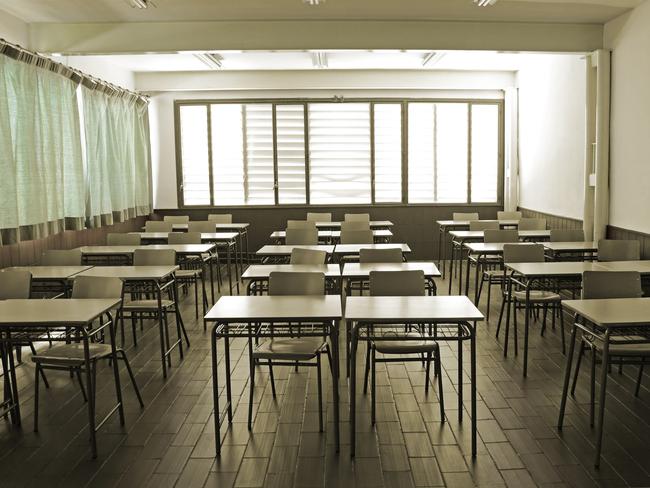
“We refer to them as ‘ghost schools’, because there are very few students to be seen,” Australian Academy of Vocational Education and Trades (AAVET) managing director Menelaos Koumides told the committee.
“I’ve walked into a few, looking at hiring premises. You will see teachers at desks, on computers, in empty classrooms.”
There were nearly 970,000 international student enrolments in Australia in between January and August this year, according to the Education Department, a 15 per cent increase on the same period in 2019.
China was the biggest source (22 per cent), followed by India (17 per cent), Nepal (8 per cent), the Philippines (5 per cent) and Vietnam (5 per cent).
Growth in enrolments was the highest in the VET sector at 42 per cent.
There have previously been calls to deport any students found to have been enrolled in ghost colleges — but experts warned this could simply trigger more international students to apply for asylum as supposed refugees.
“It’s a very delicate area the government is constantly dealing with,” said Melanie Macfarlane, chief executive of MM Migration and Recruitment and chair of Immigration Consultants of Australia.
“I think they’ve shot themselves in the foot in many ways, because with all these measures coming into place [cracking down on international students], they’re being influenced to apply for asylum.”
Last month, international students staged protests against recent visa changes, saying they feared being forced to return home and warning Australians “you need us”.
The federal government recently tightened the rules around the popular 485 temporary graduate visa as part of its migration strategy, reducing the age cap and tightening English proficiency requirements.
The 485 visa previously granted full post-study work rights for international students for up to eight years, making it one of the most attractive of its kind in the world and creating a large group of “permanently temporary” migrants.
“We don’t deserve to be singled out because of our age,” said JC Coca, a speaker at one event, SBS reported. “Australia, you need us! You need my skills!”
Originally published as Fake students complain to Indian newspaper after Australian ‘ghost college’ crackdown





